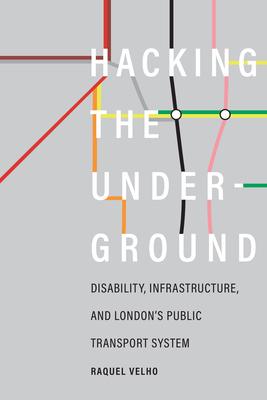Reveals how knowledge from the margins shapes infrastructures
"Minding the gap" while using a wheelchair on the London Underground goes beyond a sharp eye and careful foot placement to avoid a fall: it can entail carrying and deploying a portable ramp to embark and disembark or carefully mapping out a custom route ahead of time. The extensive infrastructure of London's public transportation system requires constant improvisation from users who move through the system differently than nondisabled people do. Centering the voices of disabled passengers, Hacking the Underground highlights how marginalized groups subvert and ultimately transform infrastructures, actively shaping them.
Raquel Velho draws on emancipatory action research in London, capturing the hegemonic character of infrastructures without losing the experiences and actions of marginalized users. Proposing a crip feminist and profoundly relational approach to infrastructure, Velho illustrates how the built environment holds the potential for both inclusionary and exclusionary world-building.

Hacking the Underground: Disability, Infrastructure, and London's Public Transport System
Reveals how knowledge from the margins shapes infrastructures
"Minding the gap" while using a wheelchair on the London Underground goes beyond a sharp eye and careful foot placement to avoid a fall: it can entail carrying and deploying a portable ramp to embark and disembark or carefully mapping out a custom route ahead of time. The extensive infrastructure of London's public transportation system requires constant improvisation from users who move through the system differently than nondisabled people do. Centering the voices of disabled passengers, Hacking the Underground highlights how marginalized groups subvert and ultimately transform infrastructures, actively shaping them.
Raquel Velho draws on emancipatory action research in London, capturing the hegemonic character of infrastructures without losing the experiences and actions of marginalized users. Proposing a crip feminist and profoundly relational approach to infrastructure, Velho illustrates how the built environment holds the potential for both inclusionary and exclusionary world-building.